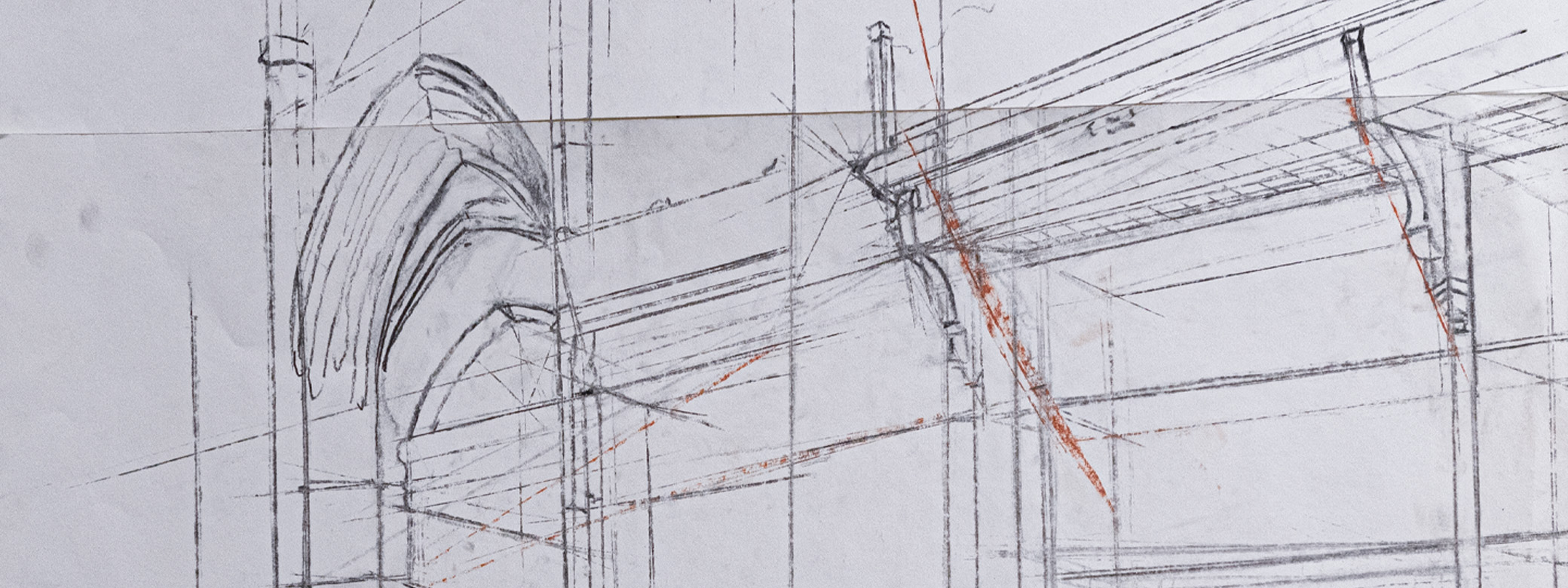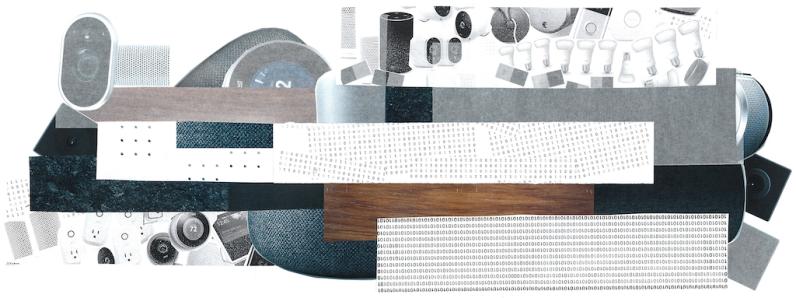Technology developments and an increased awareness of the role of technology in society present Interaction Design with many new opportunities for research. Both of our professors in this field — Audrey Desjardins and Axel Roesler — recently received awards from major industry partners that will allow them to further their research and involve students in the process.
Audrey Desjardins
Assistant Professor
Her project is titled "(In)Visible Data: How home dwellers engage with domestic IoT data." It was given a $25,000 award by Mozilla Corporation in November 2018. Mozilla has a mission "to ensure the Internet is a global public resource, open and accessible to all. An Internet that truly puts people first, where individuals can shape their own experience and are empowered, safe and independent." Desjardins' project follows this mission by seeking to surface the data captured through everyday interactions with connected devices (or Internet of Things (IoT) artifacts) in the home and making it more accessible and meaningful to the people who are using IoT devices.
The project is about IoT data in the home. The IoT industry for the home is rapidly growing in the consumer electronics landscape, bringing into our homes a number of data-oriented connected products (e.g., home assistants, smart thermostats, smart locks, connected security cameras, etc.). Data from these devices is used to support a seamless everyday life; however, data is also surprisingly silenced, invisible, and absent in households.
There will be two phases to the research. First, her team will conduct ethnographic-inspired contextual inquiries with participants to understand how they currently engage with IoT data in their home. The researchers will conduct home tours where participants will show them their IoT devices, how they use them, and how they interact with the data if at all. Desjardins and her team will then investigate the types of data people wish they could have about their homes. Research activities will include imaginative storytelling, creative mad libs, and a set of cultural probes such as data collection diaries, data mapping, and visual representations of imagined data. Participants will use the probes in their homes over three to six weeks.
With current trends stating that the number of IoT devices will exponentially grow in the next few years, it is crucial that researchers continue to investigate what people might find meaningful about IoT devices and data, how they might gain value from them, and how they will fit in everyday settings like the home.
Axel Roesler
Associate Professor + Marsha and Jay Glazer Endowed University Professor
Roesler received a $95,000 Google AR/VR Research Award for his project titled "Affordances for Direct Interaction through Augmented Reality Interfaces." His research explores a new interface design approach for augmented/mixed reality applications. It examines the spatial and visual perception/cognition attributes of direct interaction, which is interaction based on visual perception that is not 2D representation mediated as in the traditional concept of graphic interface. Current interaction models for line of sight experiences in augmented/virtual reality (AR/VR) are driven by traditional 2D interface frameworks that were developed for rectangular displays. This design legacy has resulted in integration issues for gaze, locomotion, and spatial gestures as basis for the interaction with visual targets, equivalents to buttons, and textual information in the field of view.
Over the next year, Roesler and his team of students will develop design patterns for direct interaction through head mounted line of sight AR devices. The new interaction design patterns for direct interaction will take the form of a series of demos that can be experienced first person through head-mounted AR devices. The demos are intended for sharing the new interaction models with design and developer teams. Roesler's goal is to develop a comprehensive first take on a direct interaction interface framework that can translate across the entire spectrum of AR/VR devices, from augmented reality headsets to virtual reality and screen-based devices. Findings and insight from the research are open source and will be shared with the design and AR/VR research community as a series of papers and presentations.
Unrelated to his Google award, but related to his AR research, Roesler participated in a week-long immersive design residency at Frank Lloyd Wright's iconic Fallingwater house in Mill Run, Pennsylvania, during August 2018. With a small group of AR/VR artists, researchers, and developers, he had the opportunity to experience the house and its grounds as well as meet with conservationists, curators, and ground staff to explore opportunities and design challenges of virtual experiences in architectural contexts.

